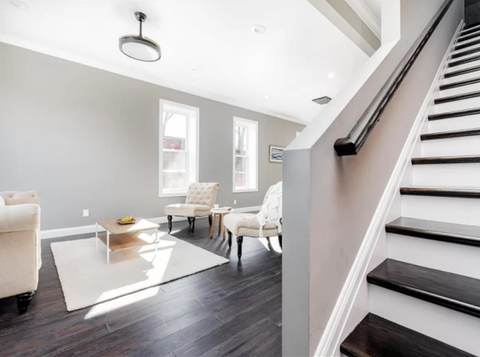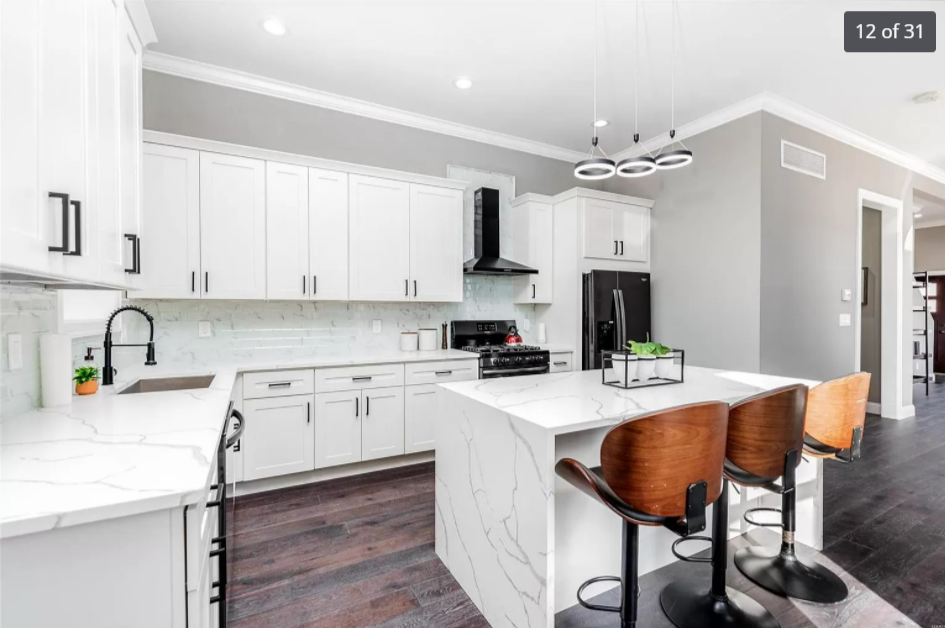
Supportive Housing
Our supportive housing location serves clients transitioning back to their regular daily living routine.
RecoVET will operate three (3) apartment buildings and homes across the St. Louis area to establish rapid housing opportunities for Veterans. Incorporating 75% of all activities conducted by RecoVET, the supportive recovery housing model is the organization’s primary program, setting it apart from others in the field. Many individuals seek supportive recovery housing because they either need to remove themselves from their current environment to initiate change in their lives or are currently experiencing homelessness.
The Transitional Living Program is the cornerstone of RecoVET’s success. Veterans residing in the housing program will be provided with a healthy, supportive, and structured living environment. They will receive guidance from Peer Support Specialists who share similar lived experiences, with facility programming co-led by the Executive Director and the Lead Peer of the residency. Residents will live in a recovery-oriented community, attend treatment meetings, and participate in peer support groups addressing addiction and behavioral health concerns.
Housing is contingent upon participation in behavioral health and/or addiction services. All residents are required to follow the guidelines of the Transitional Living Program. Each resident is encouraged to work part-time, volunteer, or attend school for at least 20 hours per week. By promoting these activities, RecoVET fosters independence, which is a key element of both sobriety and recovery. As residents build independence, their self-image and self-efficacy are expected to improve as well.
Jordan Hampton discusses the philosophy of Recovery House and what makes it successful.
Compassion, Love, and Tolerance

Requirements for Residency
-
Residents must be male.
-
Residents must be 18 years of age or older.
-
Residents must be abstinent from alcohol and all illicit substances
-
All new residents must be interviewed before acceptance into the house is granted.
-
To be considered for admission, a potential resident must fill out an application and a personal plan for recovery. This plan typically includes any group sessions, individual counseling, social support, and/or medication that the potential resident uses to aid in their sobriety.
-
Once accepted, the resident will play a role in building culture amongst the home and can have the option of holding an elected position as the residents’ recovery progresses.
-
Residents are responsible for maintaining general care of the home
-
Mandatory weekly meetings, weekly peer coaching sessions, random urine drug screenings, and daily recovery process groups are held by the house management

Amenities At The Supportive Housing Homes May Include:
-
Security Cameras/Alarm System
-
Updated Appliances
-
Modern Leather Furniture
-
Television with Cable
-
Pool Table
-
Wireless Internet
-
Computer Room
-
Library
-
Washer & Dryer
-
Backyard Grill & Fire-Pit
-
Work Garage

Key Features
24/7 Support: Our program operates around the clock, ensuring that help is available whenever needed.
Peer-Led Environment: Find solace in a supportive, peer-led space that understands and respects your journey.
Trauma-Informed Setting: Our environment prioritizes sensitivity to trauma, fostering a safe space for healing.
Social Model of Recovery: Engage in a process of positive change, empowering you to improve health and wellness.
20 Peaceful Acres: Enjoy the tranquility and serenity of nature and all the property has to offer outdoors.
Peer Support: Connect with others who understand your experiences, fostering a sense of community.
Treatment and Recovery Resources: Access a network of treatment options and recovery resources to support your unique journey.








































_edited.png)



